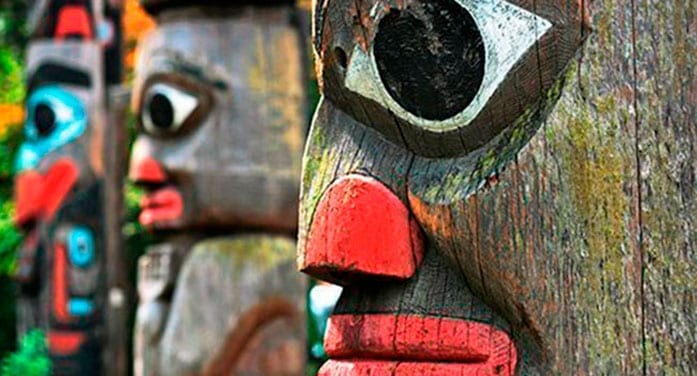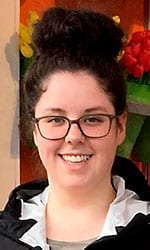To get a snapshot of the country’s population, a national census focused on gathering household information is held every five years. The resulting data from Statistics Canada helps businesses, associations, community organizations and governments – including Indigenous leadership – shape their policies and programs.
In preparation for the May launch of the 2021 Census, University of Alberta graduate Krista Chiponski is building relationships with Indigenous leaders to bring the census into their communities.
As an Indigenous liaison adviser for the Centre for Indigenous Statistics and Partnerships, Chiponski, who graduated in 2017 with a bachelor of arts degree in sociology, is connecting with 63 First Nations communities in Manitoba.
We asked Chiponski about her work.
As an Indigenous liaison adviser, what are you doing for the 2021 Census?
My role is to liaise between Statistics Canada and all users of Indigenous statistics. I help build relationships between Statistics Canada and Indigenous communities, and partner with those communities to help plan for the 2021 Census.
Statistics Canada’s connection with Indigenous peoples is always growing and improving with each census cycle, and my work is to help facilitate knowledge exchange. I want to ensure that vital statistical information about specific nations gets into the hands of Indigenous leaders and communities. At the same time, we want to encourage Indigenous communities to share how Statistics Canada can provide information that is effective, usable and accessible for decision-makers and users of all Indigenous statistics.
How is census data important to Indigenous communities?
Census data provides information that can help governments, communities, leaders and businesses make informed decisions. That data helps plan for the future, but also captures the present and reflects on the past.
From an everyday perspective, census data is used to apply for funding which provides the ability to operate and grow programs and services that directly impact Indigenous communities, such as child care, housing, skills training for employment, education and the ability to develop economic opportunities that stimulate local Indigenous economies.
From many Indigenous perspectives – and my own as a Métis person – making decisions that will be sustainable and prosperous for future generations requires the ability to think seven generations ahead. The information census data provides can support strategic planning for communities while addressing current needs.
As a former U of A student, I also know that researchers, professionals, innovators and members of the general public can benefit from access to data about Indigenous populations, which can in turn address systemic barriers and debunk myths about First Nations, Métis and Inuit lived experiences.
What do you hope to accomplish through your work?
Living and working in Amiskwaciwâskahikan (Edmonton), on Treaty 6 territory, it never escapes me that I want to build good partnerships that are culturally safe and respectful, towards living in harmony. That’s the most important thing in what I strive to do. I try to conduct the way I work by incorporating the seven sacred teachings: love, courage, wisdom, truth, humility, honesty and respect. I also like to add an eighth – humour.
I want to ensure that Indigenous communities participate in the census so their voices are heard. In a sense, statistics are an alternative way to tell a story about your community. It’s a collection of voices, a picture of what your community is at one given time.
What do you love about your work?
As the current liaison for Manitoba, I love that I am in constant contact with First Nations leadership, communities and organizations about the 2021 Census. My Grandma was born in Layland, Manitoba, and our family’s Métis connection is woven into where the Red River and Assiniboine River meet. I try to go back often to visit family in and around Winnipeg – so getting to serve the nations and Indigenous organizations in Manitoba is an honour.
How did your University of Alberta education equip you for the important work you’re doing now?
When I started studying at the U of A in 2012, I had incredible support from the Transition Year Program (TYP), which provided me with a sense of belonging, lifelong friends and the opportunity to learn from other Indigenous students. It also empowered me to continue my educational goal of obtaining a degree. After completing TYP, I knew the direction I wanted to take my studies and it ignited my passion for wanting to improve health and socio-economic outcomes for Indigenous peoples.
I chose to major in sociology through the Faculty of Arts, minoring in Native studies. I was also fortunate to have earned a Certificate in Indigenous Governance and Partnership from the Faculty of Native Studies, which provided me with insurmountable experience and perspective into Indigenous governance systems and why establishing miyo wicehtowin (good relationships) is imperative to achieve harmony in partnerships.
My experience at the U of A set a foundation for the kind of work I am currently doing and the ambition I have to continue working in partnerships that result in positive outcomes for Indigenous peoples.
Why should people be excited about taking part in the 2021 Census?
It’s one of the most important sources of statistics for our country. From coast to coast to coast, I encourage everyone, especially Indigenous peoples, to participate in the 2021 Census.
| By Bev Betkowski for © Troy Media
The views, opinions and positions expressed by columnists and contributors are the author’s alone. They do not inherently or expressly reflect the views, opinions and/or positions of our publication.


